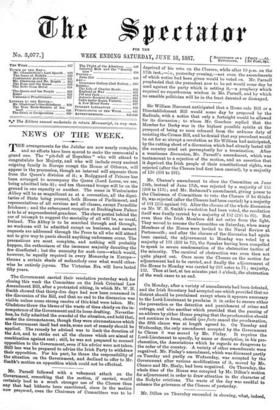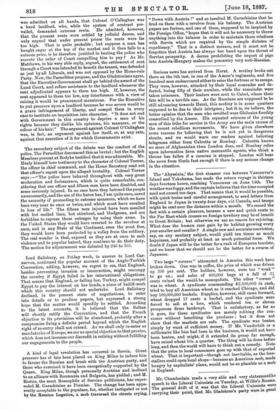Mr. Dillon on Thursday succeeded in showing, what, indeed, WRS
admitted on all hands, that Colonel O'Callaghan was a hard landlord, who, while the system of contract pre- vailed, demanded extreme rents. He admitted, however, that the present rents were settled by judicial decree, and only argued that under present prices the rents were far too high. That is quite probable; but suppose a man has bought sugar at the top of the market and it then falls to a -ruinous price, is he therefore justified in beating the police who execute the order of Court compelling him to pay ? As Mr. Matthews, in his very able reply, argued, the settlement of rent through a Court was intended to benefit the tenant, was defended as just by all Liberals, and was not opposed by the Home-rule Party. Now, the Parnellites propose, and the Gladstonians agree, that the Executive Government shall go behind the award of the Land Court, and refuse assistance to the landlord whenever the rent adjudicated appears to them too high. If, however, the rent appeared to them too low, any interference with a view of raising it would be pronounced monstrous. For the Executive to put pressure upon a landlord because he was severe would be a grave infringement of liberty, and compel them in every ease to institute an inquisition into character. "It does not rest with Government in this country to deprive a man of his rights because they dialike his opinions, his manners, or the colour of his hair." The argument against Colonel O'Callaghan was, in fact, an argument against law itself, or, at any rate, against that execution of it for which Governments exist.



































